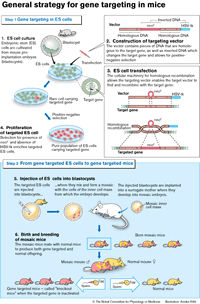Four Novartis medicines for cancer, asthma, high blood pressure and wet AMD approved in Japan
Tasigna, Xolair, Co-Dio and Lucentis provide novel and effective treatment options for serious diseases
Advertisement
Four Novartis medicines were approved in Japan - Tasigna® for the treatment of a life-threatening form of leukemia, Xolair® for severe asthma, Co-Dio®] for high blood pressure, and Lucentis® for wet age-related macular degeneration (AMD).
Tasigna (nilotinib) is approved in Japan for the treatment of certain forms of Philadelphia chromosome-positive (Ph+) chronic myeloid leukemia (CML), a rare and potentially fatal cancer of the white blood cells, in adult patients who are resistant to Glivec/Gleevec® (imatinib). The approval was supported by two studies investigating efficacy in different phases of the disease. In an international Phase II study, 42% of patients in the chronic phase of CML achieved a major cytogenetic response, while 66% of patients in CML accelerated phase achieved a hematological response. In the Japanese study the percentages were 94% and 71% respectively. Cytogenetic response refers to reduction or elimination of the abnormal Ph+ chromosome, while hematological response involves normalization of patients' white blood cell counts. Japan is currently taking part in a multinational study to explore the potential of Tasigna in newly-diagnosed CML patients.
Xolair (omalizumab) offers a new approach to the treatment of severe asthma by targeting the immunoglobulin E (IgE) antibody, a root cause of allergic disease. It is approved in Japan for treating severe bronchial asthma in adult patients who are uncontrolled despite use of standard medications. Xolair is manufactured by Novartis Pharma AG.
Co-Dio is a single-pill combination of Diovan® (valsartan), a high blood pressure medication, and hydrochlorothiazide (HCT), another high blood pressure treatment from the diuretics drug class. It is approved in Japan as second-line therapy at a dosage of 80 mg valsartan combined with either 6.25 or 12.5 mg HCT.
Lucentis (ranibizumab) was developed specifically for use in the eye and is the only approved therapy shown to improve vision and vision-related function in a vast majority of patients with wet AMD. Lucentis is indicated in Japan for subfoveal wet AMD. The application was supported by a clinical study in Japan showing that Lucentis enabled patients to improve their vision significantly compared to before treatment. Lucentis, an anti-VEGF (vascular endothelial growth factor) therapy, is developed in collaboration with Genentech and is marketed by Novartis in all countries except the USA.
In addition, an application for the approval of Rasilez® (aliskiren) tablets for the treatment of high blood pressure was submitted to the Japanese health authorities in February 2008.



























































